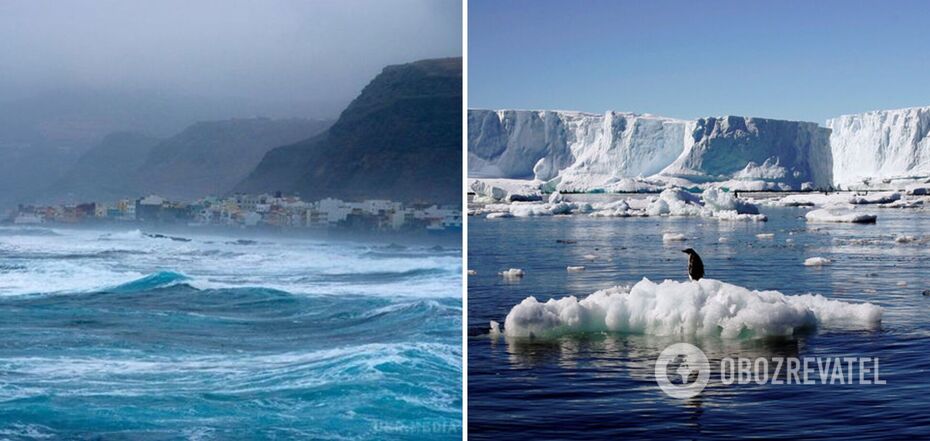News
Most of Europe will be hit by severe frost: scientists warn of "climate collapse" with catastrophic consequences for the world
The collapse of the Atlantic Ocean current system that regulates the global climate may occur much faster than scientists had predicted. Scientists emphasize that this is "bad news for the climate system and humanity" because the cessation of the circulation of these currents can change the weather around the world, and the consequences for Europe could be catastrophic.
However, scientists cannot currently predict how quickly this could happen. This was reported by Euronews.
Scientists have developed an early warning indicator for the Atlantic meridional overturning circulation (AMOC) based on a computer model.
The AMOC is a vast system of ocean currents that transports warm water, carbon, and nutrients northward across the Atlantic Ocean, where the water cools and sinks into the deep. The AMOC helps distribute energy across the planet, moving heat through the ocean like a conveyor belt and regulating our climate.
Warm water, made saltier by evaporation, flows northward over the ocean surface, keeping Europe milder than it would otherwise be. As this water cools, it sinks as the high salinity increases its density. It then flows back into the southern hemisphere along the ocean floor.
However, studies of past episodes of abrupt cooling in Europe over the past 100,000 years show that melting ice sheets can weaken the AMOC through changes in salinity and temperature.
Fresh water reduces the salinity and density of water at the ocean surface. This means less surface water sinks, potentially slowing the flow of the current.
The tipping point is near
The Dutch team used a supercomputer to run the most accurate simulations possible and find warning signs of this "tipping point". They found that a slow decline in water salinity could lead to a sudden collapse in less than 100 years.
It is noted that until now, the AMOC tipping point was only a "theoretical concept", and the authors of the study note the "surprising" speed with which the tipping point occurred in their simulations.
The study's lead author, René M. van Westen, also notes that there is currently insufficient data to draw definitive conclusions about the potential future collapse of AMOC. Additional research, including modeling of rising carbon dioxide levels and global warming, is needed to develop a clear timeframe.
"All we can say is that we are moving towards a tipping point and that the collapse of the AMOC is possible," René said.
If the current system does collapse, the climate consequences could be almost irreversible for humanity. This would lead to severe global climate change, and Europe would be hit the hardest.
In some parts of Europe, temperatures could drop by up to 30 degrees. On average, the model predicts a 10°C cooling in London and a 15°C cooling in Bergen.
The authors of the report argue that "there are no realistic adaptation measures that can cope with such rapid temperature changes."
Temperatures in the southern hemisphere will also rise, along with changes in humidity and seasonal fluctuations in the Amazon rainforest.
This can also lead to reduced precipitation and a one-meter sea level rise in coastal areas of Europe, which will lead to the flooding of many coastal cities.
Subscribe to OBOZREVATEL on Telegram and Viber to stay up to date with the latest news



























